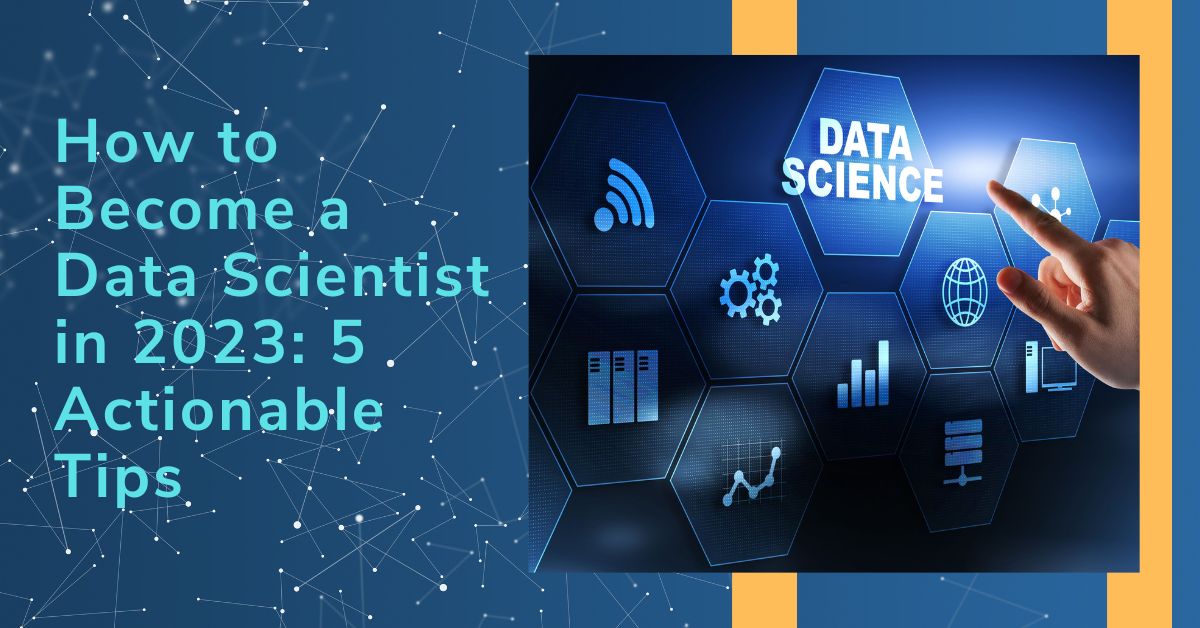Data has become an organization’s most valuable asset in the twenty-first century. Organizations produce significant data daily due to their shift to digitization and cloud-based technologies. Processing this data and gaining useful insights is crucial for their success and expansion. As a result, the importance of Data Scientists has increased dramatically in recent years. The people who practice the discipline of Data Science are called Data Scientists. They are in charge of mining the vast amounts of data stored in the group’s repositories for insightful information that will be used to inform various business decisions.
Data Scientists are also among the highest-paid professionals in the world. Establishing a job as a Data Scientist may be a wise choice, whether you’re a student or perhaps an experienced professional, as this profile offers a good career path and fetches excellent earnings.
Exactly who are Data Scientists?
Data Scientists are experts in the field of Data Science who use sophisticated analytical and scientific techniques on a vast volume of data to assist organizations in becoming data-driven in their strategic planning and decision-making. Substantial quantities of unstructured and structured data are gathered, processed, and analyzed from a business perspective. They then apply Data Science techniques like statistics, machine learning, etc., to gain insightful knowledge that can guide business decisions.
Explore the Data Science Course to get to know more about this field.
What Do Data Scientists Do?
Scientists usually work with immensely vast sets of data, or “big data,” as it is sometimes referred to, therefore, they generally spend lots of time gathering and evaluating information.
A Data Scientist may next evaluate this data to derive useful commercial insights, input it into an AI or machine learning project, and create new tools to simplify the data wrangle process or store and arrange it in a database, depending on the particulars of the function.
Requirements or background knowledge
A strong background in computer science, and mathematics and past experience working with vast amounts of data are often prerequisites for being a Data Scientist. It is frequently advantageous to have knowledge of statistical research and advanced analytics.
While there is no one-size-fits-all path to becoming a Data Scientist, your chances of succeeding can be increased if you possess the following credentials or interactions:
- A solid math and computer science foundation are necessary since Data Scientists deal with vast amounts of data daily. It would help if you, therefore, had a solid basis both in mathematics and computer science. You should be especially at ease with statistical techniques and algorithms.
- The ability to successfully manipulate and analyze large data sets is a requirement for Data Scientists. Working experience with huge amounts of data. As a result, you need a professional experience with massive data sets before being an expert in Data Science.
- Knowledge of statistical and computer learning techniques: Data Scientists utilize algorithms and statistical modeling as powerful tools to draw predictions from data. Someone considering becoming a Data Scientist must have experience with these methods.
- Strong visualization and communication abilities: Data Analysts must clearly explain their results to others. Therefore, anyone enthusiastic about becoming a scientist must possess great communication and visualization skills.
- Data Analysts must be prepared to consistently learn new methodologies and techniques because machine learning is constantly evolving. Anyone who wants to become a scientist must be willing to study.
How do I become a Data Scientist?
Data Scientists are in high demand and will remain so for the next ten years. As a result, there are many work prospects for those who want to become Data Scientists.
Join masters in Data Science to help your career start in this field.
Acquire Relevant Skills
A Data Analyst should be familiar with a few technologies for Visual Analytics, Algorithms, and Big Data in addition to several different languages. Knowing how to manage enormous datasets, clean them up, sort them, and perform analyses is essential when working with massive datasets.
Develop Your Portfolio and Work on Projects to Acquire Practical Experience
If you lack official schooling or experience, building a sizable, attractive, and elevated collection is a terrific method to demonstrate your talent and dedication. Since individuality and creativity are highly regarded, each portfolio must be unique, and you can select any information science projects that catch your attention.
Achieve a Bachelor’s Degree
Obtaining a bachelor’s degree in an area related to Data Science, statistics, or computer science is an excellent way to begin in the profession. Employers consider it among the most prevalent factors when employing Data Scientists.
Enroll in a Data Science course to learn more.
Discover Useful Programming Languages
Even though a Bachelor’s degree may give you a conceptual knowledge of the topic, it is crucial to brush up on pertinent computer languages like Python, R, SQL, and SAS. When working with massive datasets, these languages are crucial.
Create a Network
When you initially enter a field, developing your connection is a fantastic method to get a step through the door. It will assist you in strengthening your abilities, making new acquaintances who share your passion, working on projects, and ultimately finding employment.
If used properly, it is a valuable tool. Always stay in touch with the people you meet in the sector, even if it’s just someone you met at an event.
Web-based Communities
Pro and novice organizations can freely discuss ideas on websites like Reddit and Discord
Meetings and Conferences
It’s unnecessary to wait until you’ve got the job and established yourself in the local Data Science community. As soon as you are willing, start going to conferences and meet-ups.
Apply for a Masters in Data Science to kickstart your career.
Conclusion
The volume of effort that has to be done is undeniable, but it wouldn’t have to be intimidating.You can develop and visualize specific objectives that will assist you advance toward your first career in data science using the aforementioned framework.

